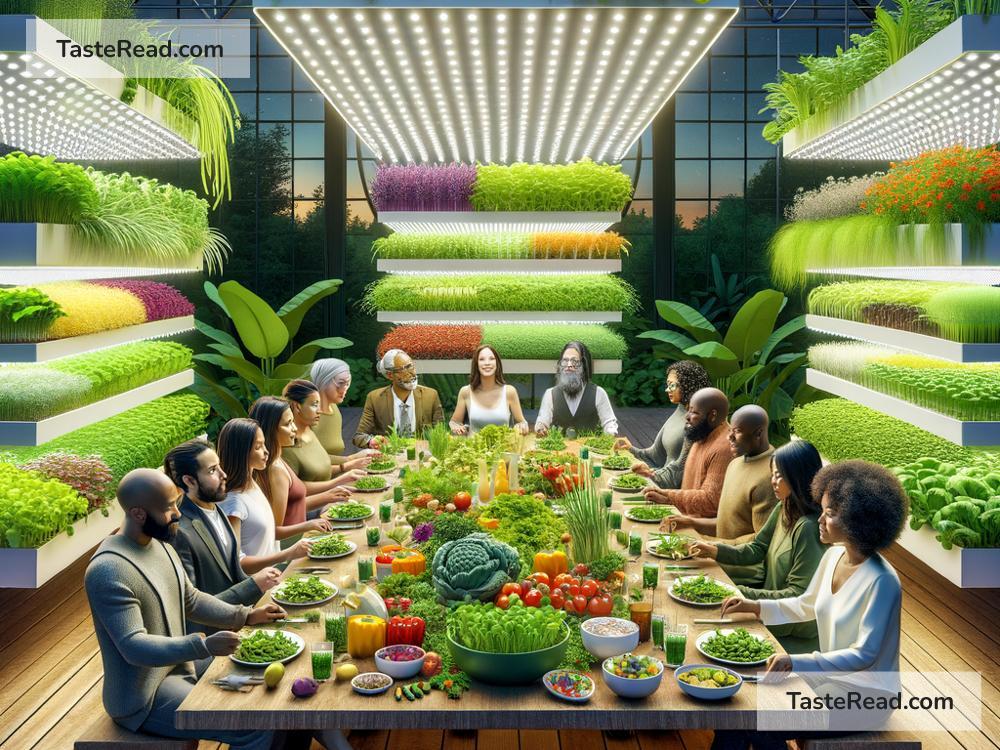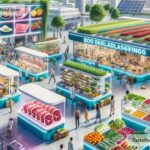The Future of Food: Building a Healthier Planet Through Collaboration
Food is more than just what we eat — it is deeply connected to our health, communities, and the planet. As the world faces challenges like climate change, population growth, and inequality, we need to rethink how we grow, produce, distribute, and consume food. The future of food won’t be solved by one person, one company, or even one country. Instead, it will take a team effort among farmers, scientists, policymakers, businesses, and everyday people. This approach is called holistic systemic collaboration, and it could lead to a better, more sustainable food system for everyone.
What’s Wrong With Our Current Food System?
Today’s food system has made food abundant in many parts of the world, but it comes with significant problems. For one, farming methods often harm the environment. Cutting down forests and overusing fertilizers pollute water, emit greenhouse gases, and decrease soil health. On top of that, food waste is a huge issue — almost one-third of all food produced goes uneaten, while millions of people globally still suffer from hunger.
Health is another concern. Processed foods filled with sugar, salt, and artificial ingredients dominate grocery stores, contributing to increases in obesity, diabetes, and heart disease. At the same time, small-scale farmers who grow nutrient-rich crops often lack support and can’t compete with large corporations. Clearly, the current way of growing and consuming food has room for improvement.
A Vision for the Future of Food
Imagine a world where your meal is not only healthy for you but also good for the planet. Local farms use eco-friendly methods, reducing pollution and growing fresh crops. Grocery stores focus on selling diverse foods, including plant-based proteins that require fewer resources to produce than meat. Technology helps farmers predict weather changes and fight pests without harmful chemicals. Communities work together to reduce food waste, donating unused food to those in need.
This vision is possible, but it requires collaboration at every level. Let’s look at how different groups can work together to make it happen.
Farming Smarter With Nature’s Help
Farmers play a key role in the future of food. More and more farmers are adopting practices like regenerative agriculture, which rebuilds soil health and restores ecosystems. For example, some farms plant cover crops between harvests to prevent soil erosion and boost nutrients. Others rotate crops to avoid reliance on fertilizers. These techniques protect the land while growing food sustainably.
Science and technology are also helping. Farmers now use tools like drones and sensors to monitor crops and soil conditions. Apps provide weather forecasting so farmers can plan their planting schedules. Genetic research creates crops that are resistant to pests, droughts, and diseases. Governments, universities, and private companies can support farmers by funding research and offering training in these methods.
Better Choices for Consumers and Businesses
What we eat also shapes the future of food. Many consumers are already shifting their diets — for example, eating more plant-based meals helps reduce demand for resource-intensive meat production. Big companies are catching on, investing in products like lab-grown meat and plant-based proteins. These innovations create fewer emissions and offer sustainable alternatives.
Reducing food waste is another important step. Restaurants, grocery stores, and food delivery platforms can partner with nonprofits to donate unused food to shelters or food banks. Apps can help households track expiration dates and share excess groceries with neighbors. Less waste means less pressure on farms to overproduce, saving resources like water and energy.
Policies That Unite People and Protect the Planet
Governments play a major role in shaping the future of food. By creating policies that support sustainable farming, reduce waste, and protect biodiversity, policymakers can push systemic change forward.
One example is offering subsidies to farmers who practice eco-friendly methods rather than rewarding those who produce crops in bulk. Cities can also invest in urban farming projects, turning rooftops and vacant lots into gardens. These gardens not only grow food locally but also improve air quality and reduce urban heat.
At a global level, nations need to work together. Climate change, food security, and biodiversity loss are issues that cross borders. International agreements can ensure fair trade, protect endangered species, and fund projects that reduce hunger in vulnerable regions.
Everyday Actions That Make a Big Impact
While governments, companies, and farmers have significant influence, individuals also hold power to shape the future of food. Small actions — like choosing sustainable products, composting food scraps, and supporting local farmers — can add up to create big change.
Educating yourself and others is another way to help. Research how your food is grown, where it comes from, and who is producing it. Share what you learn with friends and family. When people understand the impact of their choices, they are more likely to make healthier and more sustainable decisions.
The Power of Working Together
The future of food is about all of us — farmers, scientists, businesses, governments, and everyday people — working together to create a system that is fair, healthy, and sustainable. Holistic systemic collaboration means looking at the big picture and understanding how everything is connected. When we support one another and focus on solutions, we can build a world where everyone has access to nutritious food and a healthy planet.
The journey won’t be easy, but it will be worth it. Every bite we take can be a step towards a better future, if we commit to solving the problem together. The future of food starts with collaboration, and it starts with us.


